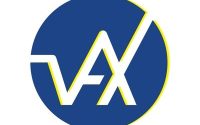Scammers Drain $3 Million From Swaprum In Devastating RugPull
In a recent setback for the Arbitrum ecological project, the decentralized finance (DeFi) platform Swaprum experienced a devastating Rug Pull, leading to a significant loss of approximately $3 million. As a result, the value of the project’s tokens plummeted, almost reaching zero.
#PeckShieldAler #rugpull @Swaprum on #Arbitrum rugged ~$3M, $SAPR has dropped -100%. @Swaprum already deleted its social accounts/groups.
The scammers have bridged ~1,628 $ETH to #Ethereum and laundered 1,620 $ETH to Tornado Cashhttps://t.co/tUNgbwGQCd pic.twitter.com/UH8V9RyFHy— PeckShieldAlert (@PeckShieldAlert) May 19, 2023
Swaprum Attack
According to PeckShield, a leading blockchain security firm, the scammers behind the attack transferred a substantial amount of 1,620 ETH (Ethereum) into Tornado Cash, a privacy-focused protocol for anonymous transactions on the blockchain. This attempt to obfuscate the stolen funds complicates the process of tracking and recovering the stolen assets.
The unfortunate incident comes at a time when the Arbitrum ecosystem had been gaining traction and attracting significant attention from the DeFi community. Swaprum, as part of the Arbitrum network, offered users the ability to trade various tokens and engage in yield farming. The Rug Pull not only undermines investor confidence in the project but also raises concerns about the security and reliability of DeFi platforms in general.
Exposed Protocol Vulnerabilities
To address such vulnerabilities and restore trust in the ecosystem, the protocol had recently announced an upcoming audit by CertiK, a prominent blockchain security company specializing in smart contract audits. Audits play a crucial role in identifying potential vulnerabilities and weaknesses in the codebase, providing insights to improve security measures and protect users from malicious attacks. However, the Rug Pull occurred before the audit was conducted, highlighting the importance of continuous monitoring and proactive security measures in the rapidly evolving DeFi space.
The Swaprum Rug Pull serves as a stark reminder of the risks associated with investing and participating in DeFi projects. As the industry continues to grow, it is essential for users and investors to exercise caution, conduct thorough research, and assess the security measures implemented by projects before engaging with them. Additionally, projects should prioritize security and transparency, working closely with reputable security firms to mitigate potential risks and safeguard user funds.



